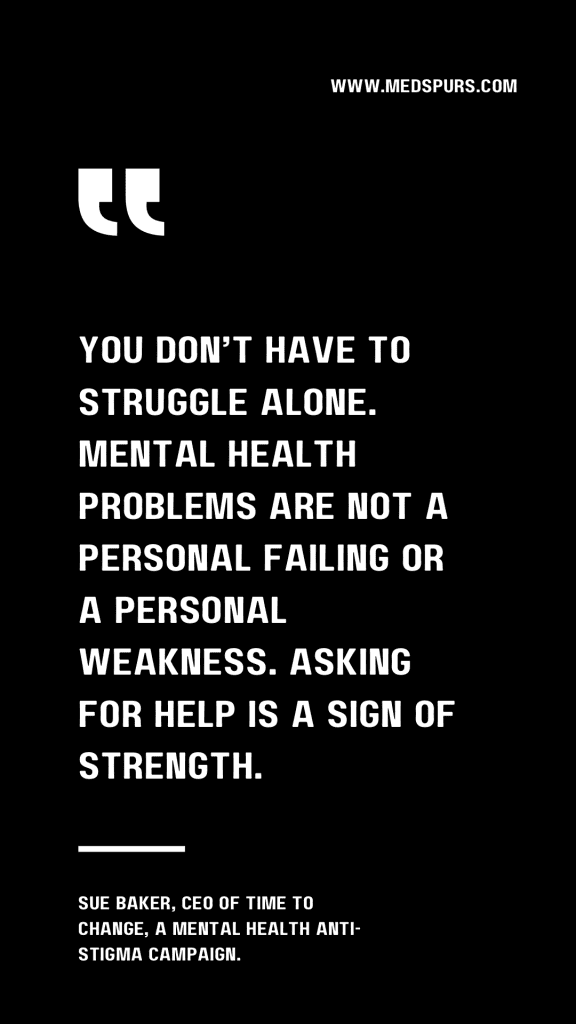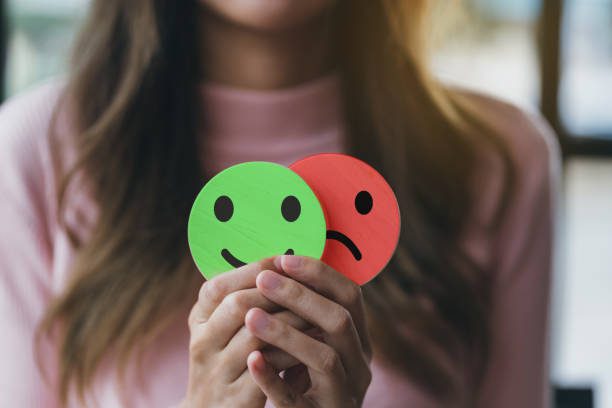This content is for informational and educational purposes only. Always consult a qualified healthcare provider.
Last Updated on November 30, 2024 by Pen Pixel
Mental health problems are a big deal and affect a lot of people, including YOU and ME. About 1 in 5 adults deal with these issues every year. That’s a lot! It’s SUPER important to talk about mental health openly. If you or someone you care about is struggling, getting help is a must.
📋 Table of Contents
The Key Takeaway.
Mental health disorders are treatable, and recovery is possible. If you or someone you care about is struggling, don’t wait to get help. We need to keep pushing for mental health awareness and fight the stigma. Mental health is just as important as physical health, so let’s make it a priority!
What Are Mental Health Disorders?
Mental health disorders or illnesses, mess with how you think, feel, and act. They can make daily life hard and mess up your relationships, work, and total happiness. Some misconceptions people need to stop sharing and saying about them are:
- Mental health disorders are just made-up problems or “all in your head.”
- Mental health disorders are caused by a lack of will power or a character flaw.
- People with mental health disorders are dangerous or violent.
Nope! Mental health disorders are real, serious, and can hit ANYBODY! They come from a mix of genetics, brain chemistry, stress, trauma, or substance abuse.
Also, people with mental health disorders aren’t more dangerous than anyone else. In fact, they’re more likely to be victims of that danger they’re being accused of, an example is violence. There’s no shame in having a mental health disorder, and the society needs to act like it.
Types of Mental Health Disorders.
Mental health issues come in all shapes and sizes. These are few of the many types of disorders and each one is different in its own way. Here are some major types:
- Anxiety Disorders – think constant worry and fear, avoiding certain situations. Examples: generalized anxiety disorder, panic disorder, social anxiety disorder.
- Mood Disorders – Big mood swings, like depression and bipolar disorder, with extreme highs (mania) and lows (depression).
- Psychotic Disorders – Losing touch with reality, like schizophrenia, with hallucinations, delusions, and messy thoughts.
- Eating Disorders – Messed-up eating habits, like severe dieting or purging, and an unhealthy obsession with weight. Examples: anorexia nervosa, bulimia nervosa.
- Personality Disorders – Long-term, inflexible thinking and behavior patterns causing major life issues. Examples: borderline personality disorder, narcissistic personality disorder.
- Neurodevelopmental Disorders – Problems with cognitive (brain), social, and emotional development. Examples: ADHD, autism spectrum disorder.
Causes of Mental Health Disorders.
Biological Factors:
These are all about your body’s inner workings:
- Family history of mental illness.
- Imbalances in brain chemicals like serotonin or dopamine.
- Abnormal brain development or injury.
- Imbalances during puberty or pregnancy.
- Viral or bacterial infections affecting brain chemistry.
- Lack of essential vitamins or minerals.
Environmental Triggers:
These are external factors that can mess with your mental health:
- Death of a loved one, trauma, big life changes.
- Feeling lonely and cut off.
- Abuse or neglect during childhood with long-lasting effects.
- Drugs or alcohol abuse.
Lifestyle Contributors.
These are your daily habits and choices:
- Bad stress management.
- Eating unhealthy foods and having too much alcohol or drugs.
- No regular physical activity.
- Bad sleeping habits.
- Self isolation.
- Inability to set a work-life balance.
- Self neglect.
All these factors affect your mental health, so it’d only be fair to you if you paid attention to them.
Symptoms Of A Mental Health Disorder.
Mental health disorders can show up in a so many ways, but get checked as soon as possible if you notice any or all of these:
- You’re feeling persistently sad, anxious, or irritable.
- Your sleep pattern changes, you either don’t sleep at all (insomnia) or you’re oversleeping.
- Your appetite changes, such as overeating or undereating.
- You have began to isolate yourself, and withdraw from anything social or having difficulty concentrating.
- You feel very exhausted or find it hard to motivate yourself.
Diagnosis & Treatment.
To figure out what’s going on, a mental health professional (like a psychiatrist or psychologist) will chat with you about your symptoms, medical history, and family history. In the U.S., they often use the DSM-5 (Diagnostic and Statistical Manual of Mental Disorders, 5th Edition), a big book of mental health conditions, to help diagnose you.
Once they know what’s up, they’ll create a treatment plan just for you. It’s different for everyone but here are some:
- Therapy – Talking it out with a therapist can help you understand and change your thoughts and behaviors. Its types include CBT (cognitive-behavioral therapy) and DBT (dialectical behavior therapy).
- Medications – Drugs like SSRIs (Selective Serotonin Reuptake Inhibitor) or SNRIs (Serotonin and Norepinephrine Reuptake Inhibitors) for depression and anxiety, or antipsychotics for conditions like schizophrenia or bipolar disorder might be prescribed.
- Lifestyle Changes – Exercise, healthy eating, and good sleep can help your mental health. Stress-relief activities like yoga or meditation will also help.
- Newer options like transcranial magnetic stimulation (TMS) and ketamine therapy are showing promise, especially for those who haven’t responded to traditional treatments. They’re still being studied at the moment.
If you have a mental health disorder, I want you to understand that the treatment plans are usually a mix of therapy, medication, and lifestyle changes. Finding the right plan will take time, sticking with it will take time, and getting better will take time. It is also best to stick with it even after you start feeling better to avoid relapse and have an accountability partner to help you when you can’t go on. If you or someone you know is struggling, please, always get help. You will do so much better with help.
How To Cope with A Mental Health Disorder.


Living with a mental health disorder is hard, but you can:
- Learn more about your disorder.
- Use meditation and/or yoga to reduce stress.
- Connect with friends and family for support.
- Find support groups or online communities.
- Do activities that boost your mood.
If You Are Supporting Someone, You can:
- Listen without judgment and show support.
- Encourage and help them find a therapist.
- Create a safe space for them.
- Be an accountability partner for healthy eating, regular exercise, and good sleep.
- Use positive language and avoid making them feel ashamed of their disorder.
Need Resources?
- Free, confidential support helplines are available. Find some here.
- Local and online support groups can help. You can join them.
- Online therapy platforms like BetterHelp and self-help apps like Calm are useful.
- Many self-help books offer information and support.

